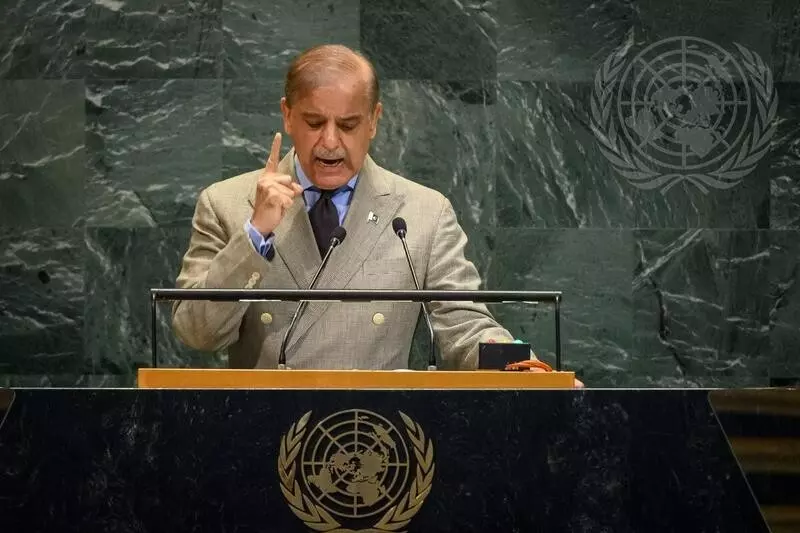
Pakistan Prime Minister Shehbaz Sharif speaks at the United Nations General Assembly (UNGA) in New York City on Friday (September 26). Photo: UN
‘Hindutva-driven extremism poses danger to world’: Pakistan PM at UN
In a sharp rebuttal to Sharif’s address, India said the Pakistani leader displayed “absurd theatrics” in the Assembly

India on Friday (September 26) hit out at Pakistan Prime Minister Shehbaz Sharif for his claims during his speech at the United Nations General Assembly (UNGA) where he raised several issues, including Operation Sindoor, and also said “India’s Hindutva-driven extremism poses a danger to the entire world.”
India’s Permanent Mission to the United Nations (UN) Petal Gahlot tore into Sharif for his speech.
Also read: India slams Pak PM Sharif's 'absurd theatrics' at UN: 'No shame, sheltered bin Laden'
In a sharp rebuttal to Sharif’s address delivered earlier in the day, Gahlot said the Pakistani leader displayed “absurd theatrics” in the Assembly.
What Sharif said
Earlier, Sharif described multilateralism as “the need of the hour”. During his speech, he claimed that India’s “seven Indian jets turned to scrap and dust”, referring to Operation Sindoor, launched by New Delhi in response to the Pahalgam terror attack.
Also read: Trump administration official assaulted inside UN headquarters during UNGA
He claimed Pakistan was “in a position of strength” during the military conflict with India and agreed for ceasefire after US President Donald Trump’s involvement.
“Though in a position of strength, Pakistan agreed to a ceasefire facilitated by (United States) President Donald Trump,” he continued, recalling that Pakistan nominated Trump for the Nobel Peace Prize. “We have won the war and now we seek to win peace in our part of the world,” he emphasised, calling for a comprehensive and result-oriented dialogue with India on the outstanding issues of the Indus River and “the inseparable right of our 240 million people on these waters”. He also raised the Kashmir issue.
Stating that Pakistan has a direct stake in a peaceful Afghanistan whose interim government must uphold human rights, including women's rights, he urged the Afghan government to take effective action against terrorist groups and ensure that Afghan soil is not used for terrorism against any country. “There must be no space for hate speech, discrimination or violence against any person or against any religion,” he continued. “Hate-driven ideology, such as India’s Hindutva-driven extremism, poses a danger to the entire world.”

